In a move raising serious counterterrorism concerns, the Trump administration has quietly removed a $5 million US bounty on Al-Qaeda-linked fugitive Syed Ziaul Huq Zia, a convicted killer of Bangladeshi-American writer Avijit Roy, coup plotter, and jihadist recruiter tied to Pakistan’s ISI.
The decision comes amid allegations of political lobbying, the release of high-profile extremists in Bangladesh, and fresh calls from Zia for insurgent groups to set up bases inside the country.
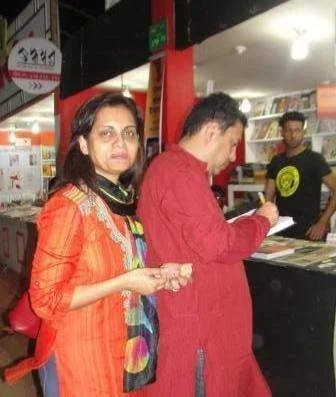
The US State Department has come under sharp criticism after it quietly removed the $5 million bounty on Al-Qaeda operative and sacked Bangladesh Army major Syed Ziaul Huq Zia, a death-row convict and fugitive since 2012.
The reward, first announced on December 20, 2021, targeted Zia and fellow fugitive Akram Hussain—both convicted conspirators in the brutal February 26, 2015, machete attack in Dhaka that killed Bangladeshi-American writer Avijit Roy and critically injured his wife, Rafida Bonya Ahmed.
Although the State Department’s bounty announcement was removed from its official Rewards for Justice website, it remained accessible on the US Embassy in Dhaka’s site as of midnight on Thursday, August 15, 2025. Sources anticipate the embassy may delete it by Sunday, after the weekly Friday–Saturday holiday in Bangladesh.
Secularists, counter-terrorism experts, and victims’ rights advocates have condemned the Trump administration’s move, accusing it of extending tacit support to violent jihadists and anti-Semitic extremists. Critics question why Washington would remove a high-value terrorist from its wanted list—and whether political or intelligence interests influenced the decision.
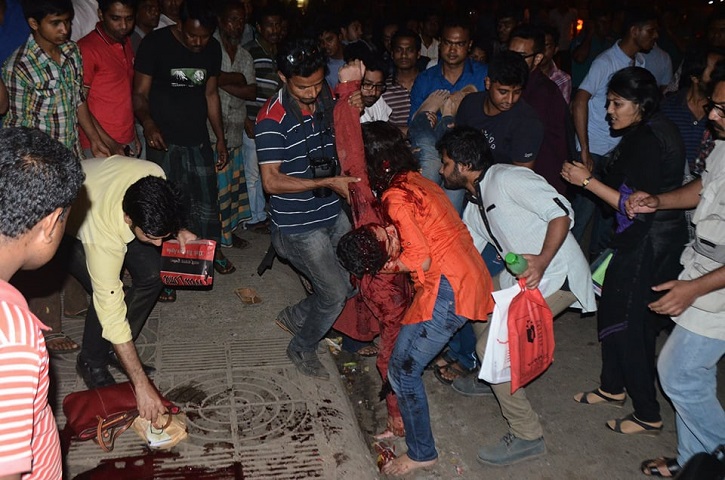
Many fear this decision will embolden extremist elements determined to turn Bangladesh into “another Afghanistan or Iraq.”
The murder of Avijit Roy and the Al-Qaeda link
On February 16, 2021, a Bangladesh court sentenced five militants to death and one to life imprisonment for Roy’s murder. All six were members of Ansar al-Islam, a banned militant organisation linked to Al-Qaeda.
Avijit Roy, a US citizen and outspoken secular blogger, and his wife were visiting Dhaka to attend the city’s book fair when they were ambushed with machetes. While Roy died at the scene, Ahmed survived with grave injuries.
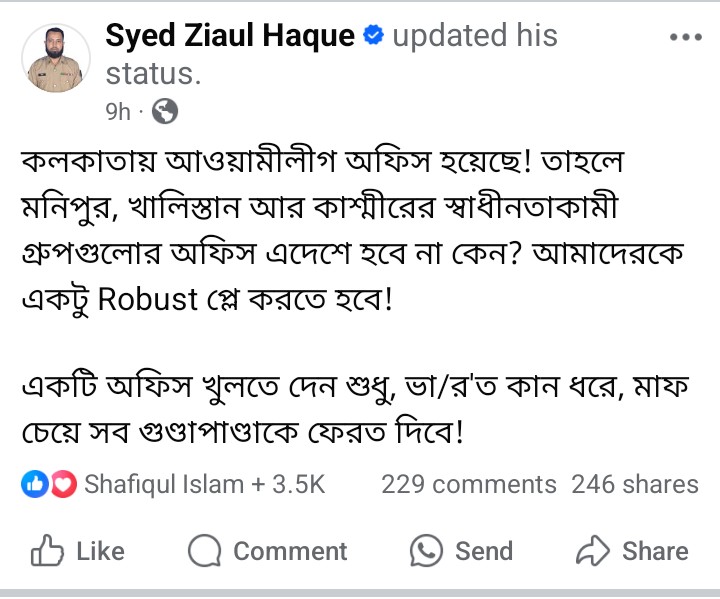
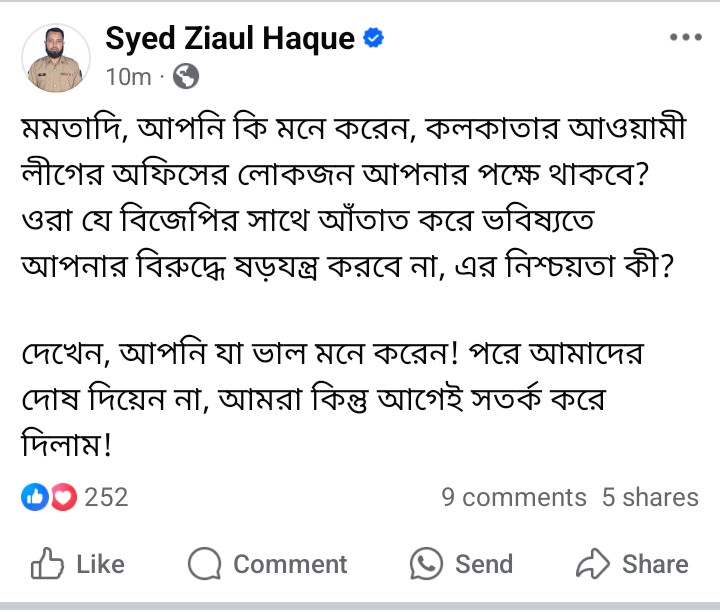
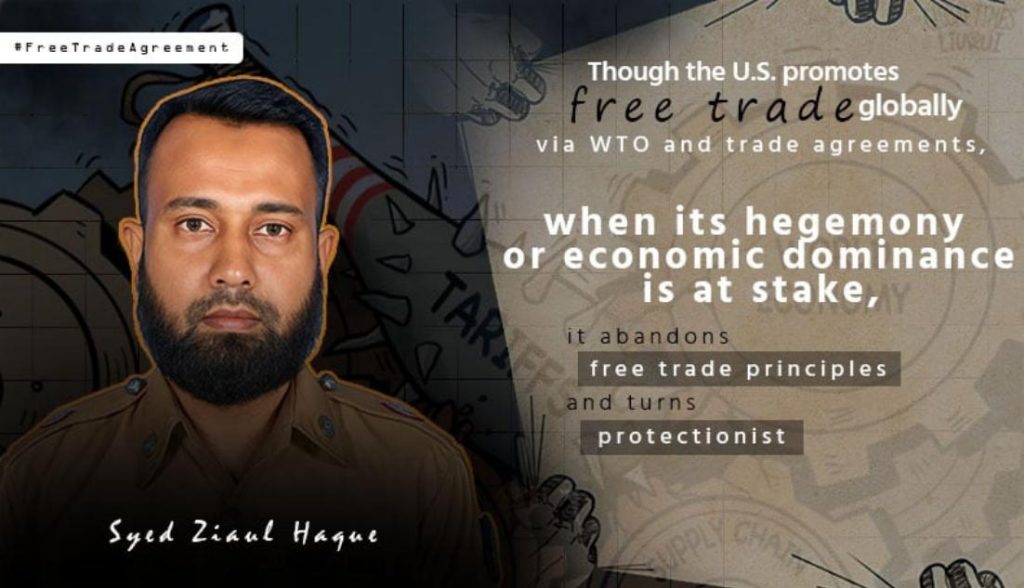
Two terrorist outfits claimed responsibility: Ansarullah Bangla Team (now known as Ansar Al Islam), an Al-Qaeda-inspired group, and later, Al-Qaeda in the Indian Subcontinent (AQIS), whose then-leader Asim Umar released a video taking credit for the attack. AQIS was designated a Foreign Terrorist Organisation by the US in 2016.
Zia’s background: From coup plotter to jihadist kingpin
Syed Ziaul Huq Zia, once a Bangladesh Army officer, fled the country after a failed coup attempt. He later found sanctuary under Pakistan’s notorious Inter-Services Intelligence (ISI), reportedly using a Pakistani passport to re-enter Bangladesh in December 2024. The Yunus regime allegedly facilitated his return by lifting mandatory security clearances for Pakistani visa applicants.
On August 10, 2025, Blitz reported that Zia openly called for the establishment of offices for insurgent groups from Manipur, Khalistan, and Kashmir inside Bangladesh. He also issued threats to West Bengal Chief Minister Mamata Banerjee, warning that Awami League members in India might collaborate with the BJP.
In December, Zia petitioned the Yunus regime to withdraw seven pending cases against him, including three where he had already been sentenced to death. He also sought cancellation of a Tk20 lakh bounty issued by the Bangladesh Police.
Lobbying for legitimacy and rewards
In a separate move, Zia used intermediaries—including a member of Qatar-based propaganda channel Al Jazeera—to send an audio plea to the US State Department requesting the withdrawal of the $5 million reward. In the same message, he urged Bangladesh Army Chief General Waker-Uz-Zaman to reinstate him and award him the military gallantry title Bir Uttam for his roles in coup attempts in 2011 and 2024.
He has publicly advocated for replacing the Bangladesh Armed Forces with an “Islamic Revolutionary Army”—effectively dismantling the nation’s existing defense structure.
A dangerous climate of impunity
In the past year, the interim regime has freed numerous high-profile jihadists, including Ansar al-Islam’s spiritual leader Jasimuddin Rahmani. Several hundred more militants have disappeared into hiding following jailbreaks during the July–August jihadist coup.
Meanwhile, Washington-based sources claim the Yunus regime, in coordination with the Bangladesh Nationalist Party (BNP) and Jamaat-e-Islami, has quietly spent large sums on lobbying the Trump administration to designate the Awami League’s student front, the Bangladesh Chhatra League (BCL), as a terrorist organisation.
Analysts warn that such lobbying could dangerously blur lines between democratic opposition politics and global counterterrorism objectives.
The Trump administration’s removal of the $5 million bounty on Zia is more than a bureaucratic adjustment—it is a dangerous signal to extremists worldwide that politics can override justice.
By legitimising a fugitive convicted of murdering a US citizen, Washington risks undermining its credibility in the fight against global terrorism, emboldening violent jihadists, and destabilising a fragile Bangladesh already battling extremist infiltration. Unless this decision is reversed and a firm stance is taken against Zia and his networks, the consequences could extend far beyond South Asia, threatening regional stability and US national security alike.